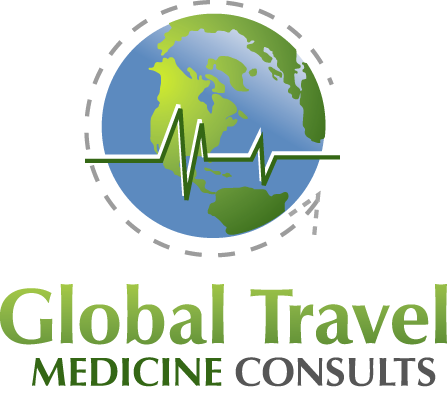Travel Medicine Vaccine and Immunization Information for Australia, Pacific Island Oceania Territories including New Zealand:
Travel Medicine Immunization and Vaccine requirements in Australia, its Island Territories, the Pacific Oceania Islands and New Zealand vary from region to region. However, there are some General Guidelines for vaccines such as the Yellow Fever Vaccination, Malaria, and other vaccines which are outlined below.
Travel Medicine Information for Africa
Travel Medicine Information for Australia
Please Click on the Links below for each individual region or territory you will be traveling in within Australia and the Pacific Islands to view the specific travel medicine recomendations and requirements for each Country:
Australia and the South Pacific
General Health Information for Travelers to Countries in Australia and the South Pacific
Recommended Vaccinations and Preventive Medications:
* Hepatitis A or immune globulin (IG). (except for Australia and New Zealand).
* Hepatitis B, especially if you might be exposed to blood or body fluids (for example, health-care workers), have sexual contact with the local population, or be exposed through medical treatment.
* Japanese Encephalitis, Papua New Guinea or the Islands of Torres Strait in Australia. Local transmission documented but rare.
* Rabies, if you might have extensive unprotected outdoor exposure in rural areas, such as might occur during camping, hiking, or bicycling, or engaging in certain occupational activities.
* Typhoid, (except for Australia and New Zealand), particularly if you are visiting developing countries in this region.
* As needed, booster doses for Tetanus-Diphtheria and Measles.
Diseases found in Australia and the South Pacific (risk can vary by country and region within a country; quality of in-country surveillance also varies)
The preventive measures you need to take while traveling in this region depend on the areas you visit and the length of time you stay. You should observe the precautions listed in this document in most areas of this region. However, in highly developed areas of Australia and New Zealand, you should observe health precautions similar to those that would apply while traveling in the United States.
Malaria:
Humans get Malaria from the bite of a mosquito infected with the parasite. Prevent this serious disease by seeing your health care provider for a prescription antimalarial drug and by protecting yourself against mosquito bites. All travelers to malaria-risk areas in Papua New Guinea, the Solomon Islands, and Vanuatu, including infants, children, and former residents of these countries should take an antimalarial drug. Papua New Guinea has risk in all areas under the elevation of 1800 meters (5906 feet). The Solomon Islands has risk in all areas, except for the southern province of Rennell Island and Bellona Island. Vanuatu has risk throughout all its islands.
For additional information on Malaria risk and prevention, see Malaria Information for Travelers to Australia and the South Pacific.
There is no risk for malaria in Australia, Christmas Island, Cook Island, Federated States of Micronesia, Fiji, French Polynesia (Tahiti), Guam, Kiribati, Marshall Islands, Nauru, New Caledonia, New Zealand, Niue, Northern Mariana Islands, Palau, Pitcairn, Samoa, American Samoa, Tokelau, Tonga, Tuvalu, Wake Island, Wallis and Futuna.
Yellow Fever:
There is no risk for Yellow Fever in Australia and the South Pacific. A certificate of Yellow Fever vaccination may be required for entry into certain of these countries if you are coming from countries in South America or sub-Saharan Africa. For detailed information, see Comprehensive Yellow Fever Vaccination Requirements. Also, find the nearest authorized U.S. Yellow Fever vaccine center.
Food and Waterborne Diseases:
Make sure your food and drinking water are safe. Food and waterborne diseases are the primary cause of illness in travelers. Travelers' Diarrhea can be caused by viruses, bacteria, or parasites, which are found throughout Australia and the South Pacific and can contaminate food or water. Infections may cause diarrhea and vomiting (E. Coli, Salmonella, Cholera, and Parasites), fever (Typhoid Fever and Toxoplasmosis), or liver damage (Hepatitis).
Other Disease Risks:
Risk of infection is quite variable within this region. Vaccine rates are high in Australia and New Zealand, but rates of certain infectious diseases are high in travelers to other islands. Dengue, Filariasis, Ross River virus, and Murray Valley Encephalitis are diseases carried by insects that also occur in this region. Scrub Typhus and other Rickettsial infections are present in this region. Protecting yourself against insect and tick bites will help to prevent these diseases. Japanese Encephalitis is present in Papua New Guinea and the Torres Strait and far northern Australia. Other hazards for travelers include Ciguatera Poisoning, which occurs frequently on some of the islands. Snake and spider bites are also a risk.
About Us:
We are Travel Medicine Board Certified Physicians and Doctors. We provide: Yellow Fever, Typhoid, Hepatitis A, Hepatitis B, Diphteria, Tetanus, Pertussis, Meningitis, Hemophilus B, Rabies, Japanese Encephalitis Virus, Mumps Measles and Rubella (MMR), HPV (Gardasil), Rota Virus, Varicella, Polio and Influenza Vaccines to Residents of Washington DC, Maryland and Virginia.
Our Vaccines Clinic is located in the Washington DC Metro area.




